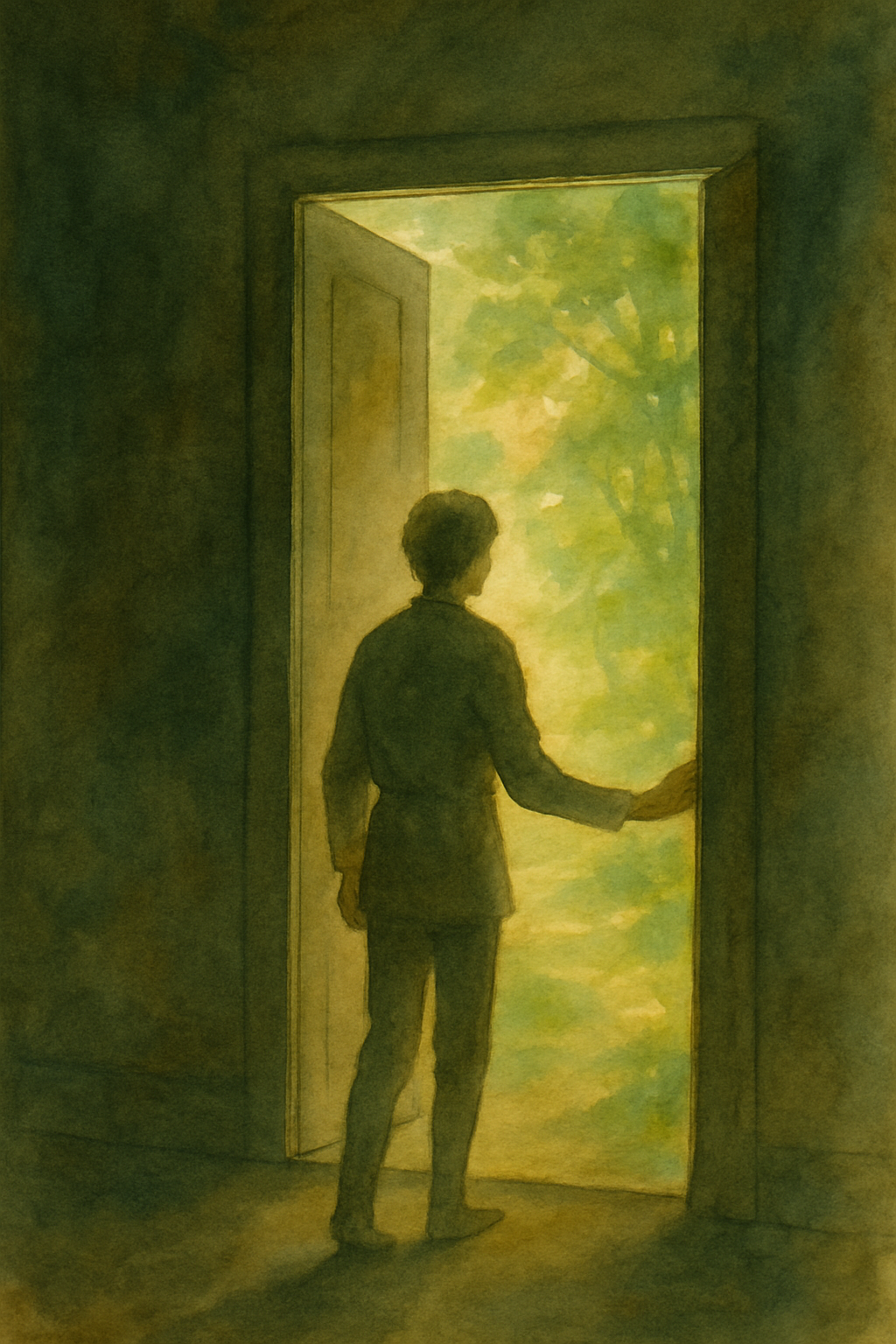The Doorway of the Soul
A Reflection on George MacDonald’s - Phantastes
Every true journey begins with wonder.
Not the easy wonder of a tourist, but the sudden trembling that comes when the ordinary turns transparent and we glimpse the world’s hidden light.
That is what happens to Anodos, the young man who wakes one morning on his twenty-first birthday to find that the solid walls of his room have melted into air.
A door now stands where none existed before.
Beyond it lies a forest filled with living shadows, whispering waters, and beings who mirror his own heart. He steps through, and the world as he knew it dissolves.
The Forest Within
MacDonald called Phantastes “a fairy tale for grown people,” but it is really the map of a spiritual life.
The woods through which Anodos wanders are not geography, they are psyche, soul, imagination. Every creature he meets, every peril he faces, is an aspect of himself calling for recognition.
The radiant lady of marble he adores is the image of ideal beauty that must shatter before he can love what is real. The dark shadow that follows him is his pride, his hunger for control. The kindly knights and singing waters are the voices of grace that never quite leave him, even when he strays.
The land of Fairy is not escapism; it is revelation.
It is the world turned inside out so the soul can see itself.
The Mirror and the Shadow
Early in the story Anodos finds a mirror that shows him what he might yet become, luminous, self-forgetting, whole. Moments later the Shadow appears, mocking him, turning beauty into self-consciousness.
MacDonald captures the tension every pilgrim knows: enlightenment beside ego, humility beside self-importance.
He learns that the only way to defeat the Shadow is not by resistance but by surrender.
When he stops defending himself, the darkness loses its power. The light he sought “out there” had been waiting within all along.
The Death That Gives Sight
In the final pages, Anodos lays down his life for another.
It is not a grand martyrdom but a quiet yielding, the soul’s recognition that love is stronger than self-will. In dying, he awakens.
He discovers that the journey through Fairyland was never a dream but the unveiling of reality itself. What looked like fantasy was the most faithful account of spiritual growth:
awakening, temptation, death, and rebirth, the same pattern hidden in every true story of transformation.
The Chrysalis Reading
In the language of The Chrysalis Sanctuary, Phantastes is the myth of awakening. It’s the moment the cocoon first trembles; the moment imagination opens the door to Presence.
Anodos’s wanderings mirror the early stages of contemplation: curiosity, disorientation, loss, then sudden glimpses of grace. To read Phantastes is to remember that the path of the soul is not linear but spiral. We circle through beauty and shadow until we learn that both are necessary.
The forest is not a place to escape but a mirror to inhabit.
This is what the mystics mean by “second sight”, not seeing angels in the sky but perceiving holiness in the ordinary world.
The Blessing for the Awakening Heart
May you walk through the doorway that appears in your ordinary room.
May you welcome both mirror and shadow,
and find courage in the forest of your own heart.
May wonder become your compass,
and love your destination.
“The one who seeks beauty shall find it waiting in the depths of his own heart.”, George MacDonald
Bruce & Sue Reflect
Sue: “You know, Bruce, that Anodos lad, woke up one morning and there was a door in his wall. What would you do?”
Bruce: “Depends what was behind it. If it’s the broom cupboard, I’d shut it again. But if it’s a forest full of truth, I might take a peek.”
Sue: “That’s what I love, he didn’t hesitate. Just stepped through.”
Bruce: “Takes guts to walk into your own soul, Sue.”
Sue: “And faith to believe it’s love you’ll find there.”

